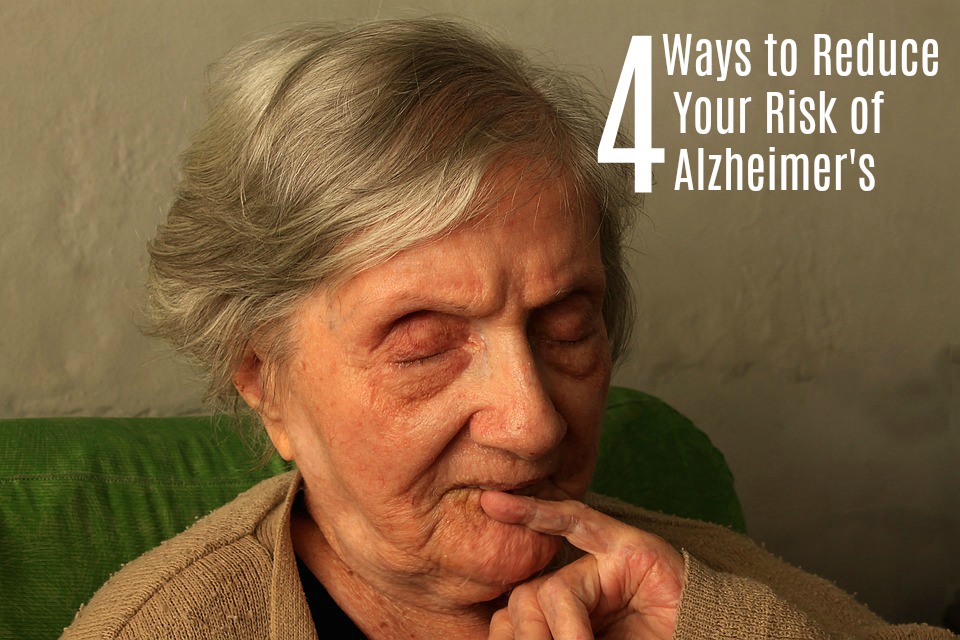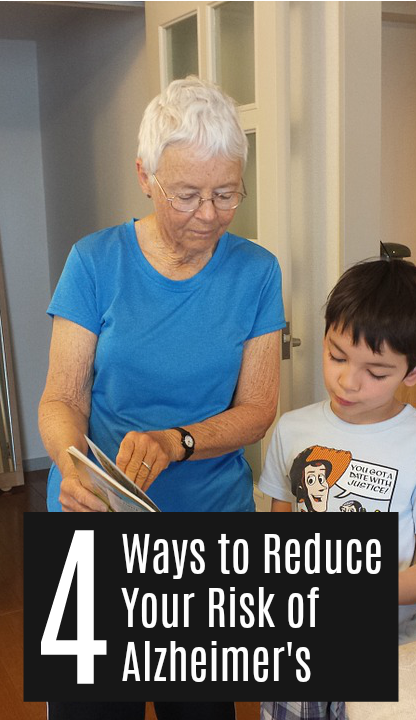4 Ways to Reduce Your Risk of Alzheimer’s
Right now there is not an exact known cause for why people get Alzheimer’s. Studies have identified a genetic mutation associated with the disease in a small amount of sufferers which has provided more information on who is at risk. Alzheimer’s is a frightening thing to deal with both for the patient and the people around him/her. The symptoms of mental decline include symptoms such as disorientation, forgetting the people and things around you and the inability to create new memories. There are other side effects on mood, behavior and motor control. Having some decisions in the ways we approach prevention of Alzheimer’s gives us hope to prolong our clear mind for as long as we can while we wait for a specific cure.

- The best resource we know of right now is diet. Upping antioxidants in foods like citrus and berries is key. Eating more veggies and less red meat makes a huge difference. Taking a vitamin and folic acid supplement helps as well. A Mediterranean diet is thought to be the most effective for prevention of Alzheimer’s. In particular, the consumption of Omega 3 fatty acids is important to reduce something called beta-amyloid plaques. Olives, salmon, tuna, avocado and nuts are high on the list of good foods with good fats. Red meat is something that should be avoided due to the link between Alzheimer’s and cardiovascular disease.
- Reducing your risk for cardiovascular disease has a direct link as well. Some studies show that as much as 80% of patients with Alzheimer’s also have heart disease such as high blood pressure and high cholesterol. This group also includes people with diabetes which can be controlled in the same ways that Alzheimer’s is prevented.
- Exercise is not something that we should do it is something that we have to do for our overall health, happiness and quality of life. If you can run and lift weights then you are doing great, but even moderate walking and stretching like yoga will up your odds at everything beneficial as far as physical, mental and emotional health.
- Although scientists do not know exactly why this helps, they do know that exercising your brain will result in a sharper mind for a longer time. It makes sense that if we use it, we don’t lose it. So read everything, do crossword puzzles, play brain games and meditate. Use all the senses that you can throughout the day to stimulate the nerves and their connections in the brain.

If we take a look at the symptoms of Alzheimer’s we can make good assumptions on how to combat the effects. To avoid losing our memory we must make time each day to purposefully remember things like phone numbers, lists and important dates. We must challenge ourselves to think more often and more critically. Study history, make connections, try to learn a few sentences in another language, eat well and exercise, avoid red meat and be good to your heart. Whatever it takes to avoid the memory loss and confusion of Alzheimer’s.
In Conclusion
Alzheimer’s disease is a debilitating condition that affects millions of Americans each year. Early diagnosis is critical to managing the disease, but many people are hesitant to seek help. If you or a loved one is showing signs of Alzheimer’s, it might be a good idea to consider caregiver services to help you cope at home. Caregivers can provide essential support, including help with activities of daily living, transportation, and emotional support. In addition, they can offer respite care to provide relief for family caregivers. While there is no cure for Alzheimer’s, receiving early diagnosis and treatment can help slow the disease’s progression and improve quality of life. So don’t wait until it’s too late to seek help- if you or a loved one is showing signs of Alzheimer’s, call a caregiver today.
Pin this for later:


